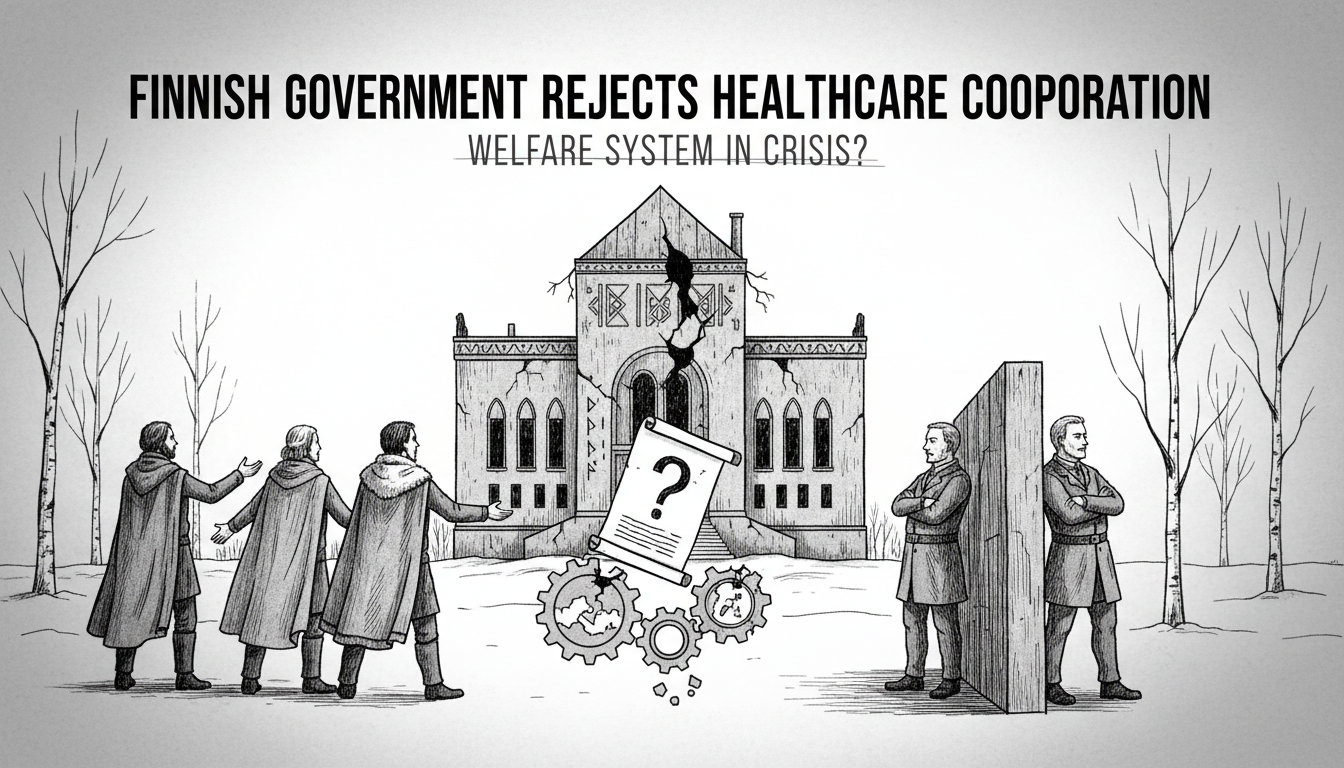Finland's ruling coalition has firmly rejected opposition demands for parliamentary cooperation to address the country's ongoing healthcare crisis. Coalition Party parliamentary group chair Jukka Kopra dismissed the opposition's proposal for cross-party collaboration on social and healthcare reform.
Kopra stated the government will wait for a December report from Under-Secretary of State Marina Erhola before making further decisions about healthcare system reforms. He argued that extending the deadline for welfare regions to cover their deficits would only postpone necessary solutions.
The opposition made a joint appeal to Prime Minister Petteri Orpo on Thursday. They requested extending the timeframe for welfare regions to address funding shortfalls beyond 2026. The state would cover potential deficits for a longer period than currently planned. Opposition parties also called for parliamentary cooperation involving all parties to resolve the healthcare crisis.
Kopra responded sharply to these proposals. He questioned whether the opposition's only solution was taking on more debt and delaying problems indefinitely. The government wants to fix the system itself rather than buying additional time, he emphasized in his Thursday evening statement.
This political standoff reflects deeper tensions in Finnish politics about how to manage the country's expensive welfare system. Finland has been grappling with healthcare reform for years, with previous governments also struggling to balance quality care with fiscal responsibility. The current system of welfare regions was established to improve efficiency but has faced persistent funding challenges.
The timing is crucial as Finland faces demographic pressures with an aging population increasing healthcare demands. International readers should understand that Finland's welfare model, while admired globally, requires constant adjustment to remain sustainable. The country has traditionally valued consensus in politics, making the current deadlock particularly notable.
Kopra pointed to reforms the government has already made to the welfare regions' funding model. Further changes are planned for next spring. When asked about potential parliamentary cooperation, Kopra noted that parliament itself serves as the forum for discussion once the government receives the December report.
The opposition compared their desired healthcare cooperation to previous successful cross-party agreements on defense spending and debt reduction. Center Party chair Antti Kaikkonen expressed readiness to begin parliamentary cooperation immediately and urged the government to take the offered hand of collaboration.
Finnish politics typically features more consensus than confrontation, but this healthcare debate shows clear ideological divides. The government prefers structural reforms while the opposition seeks temporary financial relief. This reflects broader European debates about welfare state sustainability amid economic pressures.
The outcome will affect not just Finnish citizens but also international observers studying Nordic welfare models. Expats in Finland should note that healthcare service quality and availability could be impacted by these political decisions. The December report will likely shape the next phase of this ongoing debate about Finland's future healthcare direction.

